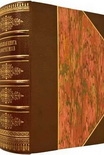Coconut Chaos, Diana Souhami [leveled readers TXT] 📗

- Author: Diana Souhami
Book online «Coconut Chaos, Diana Souhami [leveled readers TXT] 📗». Author Diana Souhami
I hoped that in making the same journey as I, Lady Myre would not invade the solitary, dreamy lonely place in my mind. I feared that like my mother and Verity, she threatened to oust my new-found interest in eighteenth-century mariners who traversed the world when it was an unknown globe of wonders and adventures.
14
Bligh wrote in his log that the mutineers called ‘Huzzah for Tahiti’ as they jeered at his plight and turned from their crime. That they sailed in the wrong direction – west-northwest – he took as a feint to deceive him. But Christian knew he’d find no safety on Tahiti. A ship would seek him and take him in irons to England to a sensational trial and a public hanging with his family vilified. And the Tahitians would view with suspicion his return without Bligh. Suspicion led to retribution. He knew how ominous Polynesian hostility could be: the clapping of conch shells, the grouping of pirogues, the slinging of stones with the force of cannon, the hacking to pieces of a man deemed an enemy. There was fear in the Polynesian soul of these light-skinned, brazen strangers who killed with gunfire while hidden from sight. Staying alive was more important to Christian than meeting again with one or several Tahitian women whose names he’d not learned to say.
He took command of the Bounty. He was its captain now. He occupied Bligh’s cabin and wore Bligh’s clothes: his dimity waistcoats, silk stockings and shirts, silver buckles and nankeen breeches. He took Bligh’s sword, pistols and fowling piece. Crucially, he appropriated his charts, maps, notes and books. Among these were James Cook’s Voyage to the Pacific Ocean, John Hawkesworth’s Account of Discoveries in the Southern Hemisphere, William Dampier’s Discourse of Voyages and Discourse on Winds, both George Anson’s and Louis Bougainville’s Voyage Round the World and Alexander Dalrymple’s Voyages and Discoveries in the Pacific Ocean.
These works had informed Bligh’s skill as a navigator. With them Christian had enough reference to find his way to wherever he chose to go. He also had plans of harbours, two sextants, a spyglass, three compasses and books on The Scurvy, The Health of Seamen, Hot Climates, on Euclid, chemistry, and electricity. He had David Hume’s History of England and the Bounty’s Bible and Prayer Book.
The Bounty was on no commercial venture now. Christian ordered that any two men in conversation be joined by a third. He pocketed the keys to the liquor store to avoid drunkenness and to safeguard the supply of port, brandy and three hundred gallons of Tenerife wine. And with hatred for Bligh he had the entire cargo of breadfruit plants thrown into the sea.
Christian’s survival now depended on lies and cunning. He’d taken a coconut to quench his thirst and consequences followed. He needed a place to hide. He chose the island of Tubuai as his destination. His plan was to go there to reconnoitre and map out an area of settlement, then return to Tahiti with some contrived explanation, abduct women and builders, and collect essential supplies.
Charted by Cook, Tubuai was 398 miles south of Tahiti and circled by a barrier reef with only a single pass through it. Christian sighted it on the afternoon of 28 May 1789, a month after the mutiny. He sent an armed cutter, with the midshipman George Stewart in charge, to explore the opening through the reef. Stewart was a small-faced, dark-eyed, skinny man, with a heart and arrows tattooed on his left arm. Tubuaians in their canoes approached to guide him. That done, they pilfered what they could from his boat. Stewart terrified them with gunfire and they sped to the shore and the cover of trees.
Next day the Bounty passed through the gap in the reef and anchored in the lagoon. Christian observed the stretch of the island, the wide lagoon, the fringe of silver sands and coconut palms. Here was a lush place of fertile valleys, concealing mountains, streams and waterfalls, another Paradise of the World.
Tubuaian tribesmen grouped on the sand armed with stones, spears and lances. They blew into conch shells and approached the Bounty in canoes. A chief, an old man, ventured on board and marvelled at the ship. Christian gave him nails and red feathers. The chief seemed honoured but was afraid of the creatures he’d never seen before – pigs, dogs and goats, the stench of them and the despairing noise they made.
In another canoe young women garlanded with flowers sang, clapped, moved in rhythm and enticed the sailors who responded with beads and propositions. Fifty more canoes quickly circled the ship. The men in them blew conch shells, beat drums, clambered on to the ship and took what they could. One grabbed the ship’s buoy, another the main compass. Christian snatched the compass back and lashed at the man with a rope. The islanders leapt into the water or back into their canoes. They made a terrific noise, waved lances, showered the ship with spears and stones and drove





Comments (0)